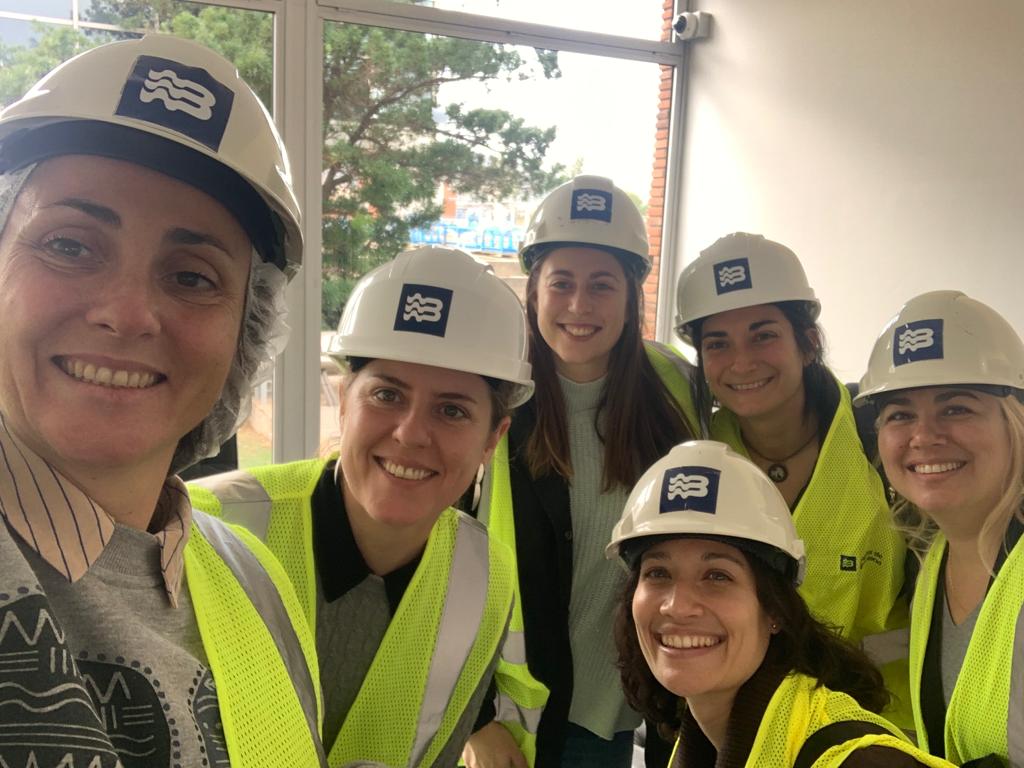BLOG | Bluephage
Bluephage’s Journey to the Heart of Catalonia’s Sustainable Aquifer Replenishment Project

Bluephage’s recent expedition along the Llobregat River unveils a groundbreaking initiative led by ACA, Aigües de Barcelona, and the Metropolitan Area of Catalonia.
The Bluephage team recently had the privilege of taking an eye-opening excursion to the Llobregat River. We visited a crucial point where regenerated waters become lifelines for the river’s flow and guarantee water for human consumption. This trip allowed us to immerse ourselves in the region’s natural beauty and brought to light the dramatic drought afflicting Catalonia and Spain as a whole.
Accompanied by our CEO, Enric Queralt, we had the opportunity to witness a groundbreaking project aimed at reducing our dependence on rivers, easing the pressure on aquifers, and reducing the burden on desalination plants. This initiative, promoted by ACA (Agència Catalana de l’Aigua), Aigües de Barcelona, and the Metropolitan Area of Barcelona, involves a pipeline that carries treated water from the Baix Llobregat wastewater treatment plant to a point 20 km upstream of the river. At this point, the treated water is mixed with the water released from the river. The water is then captured by the Sant Joan Despí drinking water treatment plant, 8 km downstream, and made suitable for human consumption.
In Catalonia, there are currently 53 treatment plants that release a considerable amount of water into river basins or along the coastline, which cannot be reused. The proposal aims to redirect this resource, giving it a second life for indirect supply, irrigation, or maintenance flow of rivers.
During our field trip, we had the opportunity to witness the outlet of the reclaimed water, which is situated a few kilometers upstream of the Sant Joan Despí water treatment plant. Enric Queralt, our CEO, enlightened us about the intricate flow of rivers and the meticulous management involved in preserving aquifers while ensuring the availability of water for human consumption.
After that, we went to the Sant Joan Despí water treatment plant. There, Jordi Castello, the Transformation Management Technician at Aigües de Barcelona, greeted us and showed us a model of the Baix Llobregat map. He explained how they plan to recover wastewater and ensure the river flow and the supply of drinking water.
During the visit, we got a detailed tour of the facility, starting from where the water was collected from the river, and ending at the various aquifer extraction wells. It was fascinating to see the different stages of potabilization, including microfiltration and the reverse osmosis stage, which played a crucial role in this innovative process.
The field trip served to deepen our understanding of water management and natural resource conservation, while also instilling in us a profound appreciation for the tireless efforts dedicated to preserving our environment. At Bluephage, we remain steadfast in our commitment to exploring sustainable solutions that guarantee safe and accessible water for all, as well as advocating for environmentally friendly practices.

